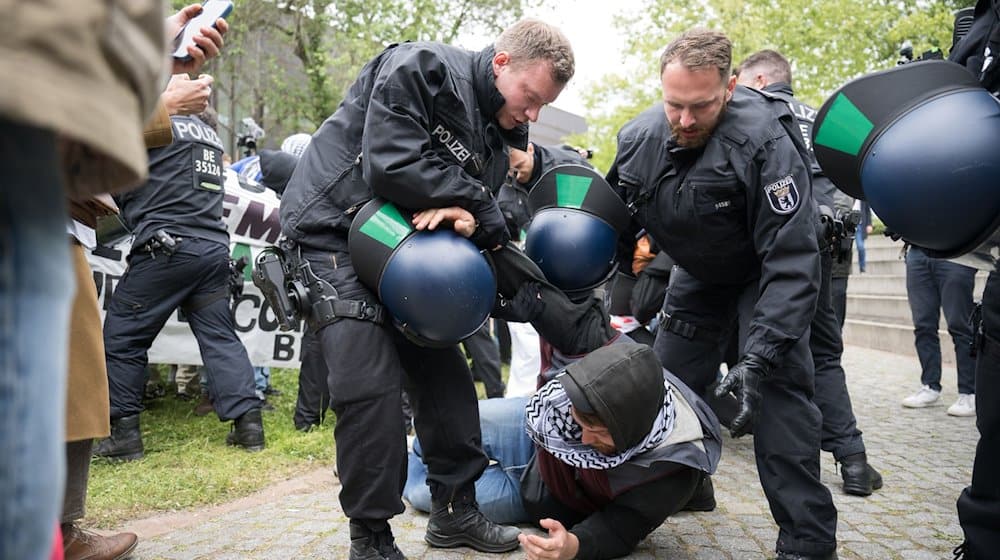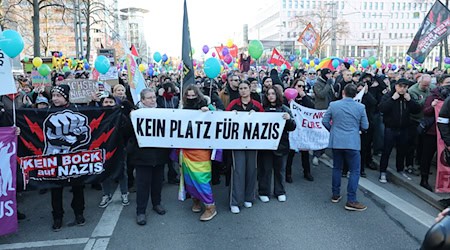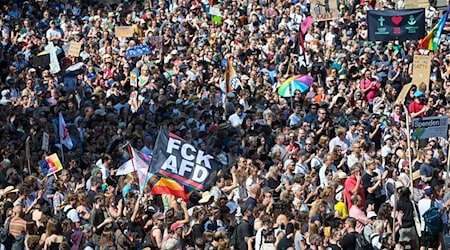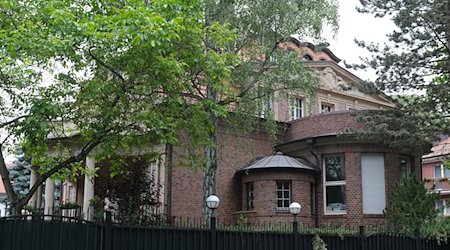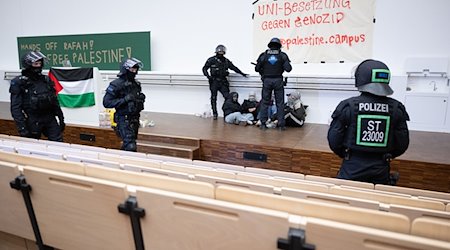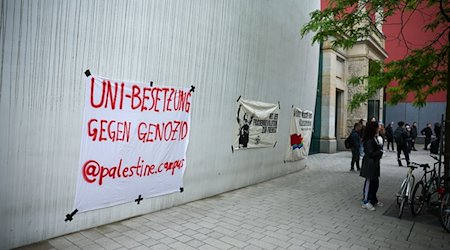The German University Association, student and police representatives have criticized the occupation of universities by pro-Palestinian activists. Universities are places of differentiated intellectual debate, the President of the German University Association, Lambert T. Koch, told the German Press Agency. They are "not places for violent protests that get out of hand, as was recently the case at HU and now FU Berlin".
On Tuesday, Freie Universität (FU) temporarily suspended operations because 150 activists occupied the courtyard. The police cleared the site in the afternoon. According to the university, activists had also attempted to occupy rooms and lecture halls at the university and there had been damage to property. Officers were also called to a similar operation in Leipzig. There, a good 50 activists had occupied the Audimax and inner courtyard. The police cleared the lecture hall in the evening and said there were currently 13 suspects. On Friday, activists had protested at Humboldt University. Around 150 people had gathered for an unregistered rally.
Koch commented on the incidents in Berlin, saying that the boundaries between legitimate criticism of Israel and anti-Semitism and between understandable sympathy for the Palestinian civilian population and blatant support for the terrorist organization Hamas were being crossed alarmingly quickly time and again. It is right that university administrations exercise their domiciliary rights. "Those who preach intolerance should not expect tolerance," it said. "We owe this not only, but especially to the Jewish university members who have been fearing for their safety at German universities since October 7."
The Federal Government Commissioner for Anti-Semitism, Felix Klein, attested that the police and judiciary in Germany have done an excellent job in dealing with anti-Semitic demonstrations since the terrorist attacks by Hamas on Israel. This was recently demonstrated by the consistent intervention of the Berlin police at the pro-Palestinian protests in front of Berlin's Humboldt University, where "intolerable hatred and incitement against Israel" were spread last Friday.
Student associations called for consistent action by the universities. "The university administrations must name the "protests" for what they are: Assemblies that make anti-Semitism socially acceptable and massively endanger the safety of Jewish students," it said in a letter from the Jewish Student Union of Germany (JSUD), the Christian Democratic Students' Association (RCDS) and the Federal Association of Liberal University Groups, which was made available to Redaktionsnetzwerk Deutschland (RND). According to the letter, none of the occupiers mentioned the Israeli hostages. The chairman of the RCDS demanded that the Office for the Protection of the Constitution take action.
According to RND, the police union (GdP) called for a nationwide prevention plan to deal with anti-Semitic incidents at universities. "It is essential that all German universities and colleges implement the same procedures," union chairman Jochen Kopelke told RND, referring to standardized house rules, criminal complaints and prevention measures.
For more than two weeks, there have been protests at numerous universities in the USA against Israel's actions in the Gaza war and in support of solidarity with the Palestinians. The background to this is the unprecedented massacre of more than 1,200 people killed by terrorists from Hamas and other groups in Israel on October 7. Israel responded with massive air strikes and a ground offensive. In view of the high number of civilian casualties and the catastrophic humanitarian situation in the Gaza Strip, Israel has come under international criticism.
Copyright 2024, dpa (www.dpa.de). All rights reserved

